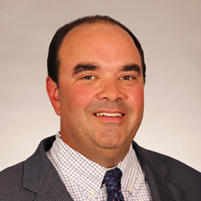School Choice Assumptions: Suburban Parents
On any given Saturday evening in my suburban neighborhood a ritual takes place. Kids of all shapes and sizes pour into interconnecting back yards and start playing.
Following closely behind, after the grass is mowed and the youth league games played, the adults pour out of the house with their glasses of wine or bottles of beer to talk about their jobs, their kids, or just life. In my case, occasionally school choice comes up.
The reaction is never negative, just curious. My experience is that suburbanites look at school choice like an exotic pet. “That’s cool you have a pet Boa constrictor,” but they really don’t understand why they would need it.
I have heard some illuminating comments though. One mother worried school choice would dilute the camaraderie of the neighborhood school. One said that she had attended private school as a child and hated it. Some worried about overcrowding in our already large and growing schools. Another brought up the only local private school’s wait list and the suspicion it was not any better than our public school.
School choice advocates often note that suburban legislators aren’t quick to support school choice. But to me their reason is simple: We have not made an effective case to suburban constituencies for why school choice would be good for them.
I make the social justice argument to my neighbors and no one disagrees it is wrong to make kids stay in “bad” schools. But suburban parents, like most other parents, are worried about their kids first and so getting them to be passionate for what sounds like a special program for kids who might as well live 1,000 miles away is a challenge. (For what it’s worth, I doubt suburban moms and dads worry much about agricultural policy either. It’s just not a chief concern.)
School choice advocates often note that suburban legislators aren’t quick to support school choice. But to me their reason is simple: We have not made an effective case to suburban constituencies for why school choice would be good for them.
Which is not to say suburban America is a lost cause for school choice. But the message of “social justice for kids stuck in bad schools” is just not enough to penetrate the consciousness of suburban parents. Here are three possible ways we can start to engage them:
- What if you moved here because of the public schools, but realized afterward that the public school doesn’t fit one of your children’s needs? Would you rather move again, pay full tuition at another school, or access the state funds already allocated for your child to pay for a school that works for your child?
- What if you lost your job unexpectedly and had to move to a different neighborhood with worse schools? Would you rather sacrifice your children’s education or have the choice to keep them at the school you think is best?
2. Design school choice programs broad enough to include suburban America. In Indiana, home of the nation’s largest school voucher program, 18 percent of first-year users came from the suburbs. And, to date, there’s been no evidence of that program harming suburban public schools—nor should we expect it to.
3. Show how school choice brings innovation and new methods of learning to even the “good” public schools. Douglas County, a suburb of Denver, Colorado—and home of some of the best public schools in the country—is revolutionizing learning and bringing greater efficiencies to its public schools via online learning, charter schools, and even private school vouchers.
Suburban families shouldn’t fear school choice. But as important, school choice advocates shouldn’t fear engaging them and their concerns either…maybe over a glass of wine or beer on a Saturday night?




